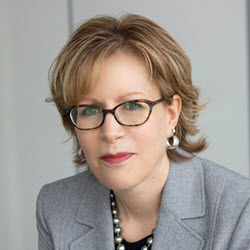Why a Corporate Executor can make Sense
Oct 01, 2014
 The role of an executor is an important job and a serious responsibility. The executor must manage and dispose of estate assets, file tax returns, and tend to a variety of other tasks to wrap up the deceased’s affairs. The executor should have expertise, willingness, availability, along with independence and objectivity. If the job is not completed in a timely or responsible fashion, the executor could be financially liable. There can also be a significant time commitment in fulfilling this role, even for seemingly simple estates.
The role of an executor is an important job and a serious responsibility. The executor must manage and dispose of estate assets, file tax returns, and tend to a variety of other tasks to wrap up the deceased’s affairs. The executor should have expertise, willingness, availability, along with independence and objectivity. If the job is not completed in a timely or responsible fashion, the executor could be financially liable. There can also be a significant time commitment in fulfilling this role, even for seemingly simple estates.
Sometimes the job is best suited for a Corporate Executor and Trustee. Trust companies operate under either provincial or federal legislation. Because of their fiduciary role, trust companies can administer estates, trusts, pension plans, and agency contracts.
Broadly speaking, scenarios that might warrant a corporate executor and trustee are if:
- You have no family members conveniently located.
- You have no family members with the time or expertise to be executor.
- You have a child who is physically or mentally impaired.
- You have a child who needs support handling money.
- You have a child with a substance abuse, marital or other difficulty.
- You wish to exclude a family member from your Will.
- You have remaining family members where mediation may be necessary.
- You are in a subsequent relationship and you or your spouse/partner have children from a previous relationship.
- You wish to include long-running trusts in your Will.
But at the heart of it all, testators are trying to ensure that their final wishes are accomplished without risk or impediment. Let’s explore some examples (courtesy of Fiduciary Trust):
Building Bridges for Blended Families
Paul wants to balance the financial security of his second wife with the expectations of his children from his first marriage.
Paul and Susan are happily married, but Paul's adult children are often at odds with their stepmother. Paul wants to ensure Susan is financially secure for the rest of her life, but also wants to know the remainder of his substantial estate will eventually pass to his children should Susan remarry or give her estate to someone else. By creating a spousal trust for Susan in his will and appointing a Corporate Executor, Paul is confident his wishes will be faithfully carried out and the potential for disputes among the people he loves will be dissipated.
The Child You Worry About
Tony and Louise are worried about how their wayward son will be supported financially after they are gone.
Tony and Louise are comfortably retired with the nest egg they built from a lifetime of hard work. Their three children are close to their parents but don't speak to each other very often. Their son Joseph has never held a job for more than a few months. Tony and Louise do not trust Joseph's current and third wife. They also suspect he may have a problem with drugs or alcohol. They lose sleep thinking about their wealth being wasted or badly invested. By appointing a Corporate Executor and Trustee, Tony and Louise create an estate plan that gives each child an equal share of their estate, but sets aside Joseph's share in a trust. This helps ensure he will receive his inheritance in smaller amounts throughout his life, in a manner that responsibly manages his windfall when he cannot.
Building a Scholarship
Mary, who has no family in Canada, dreams of creating a permanent tribute to her deceased husband.
Mary immigrated to Canada to marry her husband, a renowned anthropologist. Now, as a widow with no children and no close family in Canada, Mary wants to put her substantial estate to work. She wants scholarships in her husband's name granted to promising anthropology students at the local university. Mary chooses to create a permanent charitable trust in her will. By appointing a Corporate Executor and Trustee, she knows her estate will be managed by senior trust officers well-versed in handling charitable trusts. Furthermore, she gains confidence knowing that the trust will be managed long into the future, ensuring her husband's legacy lives on even as times change.These scenarios illustrate that a trust company can act as your executor, trustee of your trust, and/or be your substitute decision-maker in the event of mental incompetency.
Your Rogers Group Financial advisor works alongside your legal advisor and Corporate Executor/Trustee to ensure that your legacy will be passed on in a manner that gives you peace. Talk to your advisor today.
Business Owners
The most overlooked area of financial planning for business owners and incorporated professionals is the lack of integration between corporate and personal assets. When the majority of your assets are in your corporation you need very specific, specialized and personalized financial advice.
Learn More







